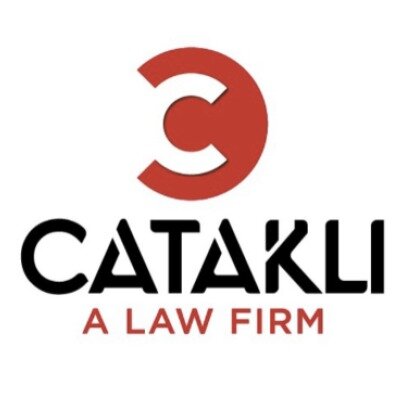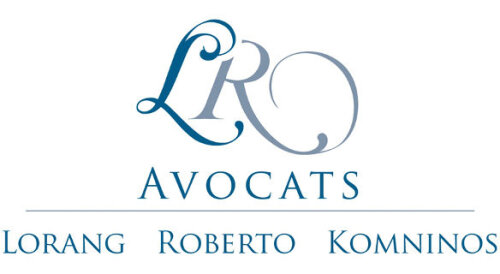Best Accounting & Auditing Lawyers in Luxembourg
Share your needs with us, get contacted by law firms.
Free. Takes 2 min.
Or refine your search by selecting a city:
List of the best lawyers in Luxembourg
About Accounting & Auditing Law in Luxembourg
Luxembourg is known for its robust financial services sector, and accounting and auditing play crucial roles within this framework. The country follows International Financial Reporting Standards (IFRS) and has detailed laws regulating the financial reporting and auditing of companies. These laws are designed to ensure transparency, accuracy, and integrity in financial information, which is crucial in maintaining investor confidence and financial stability.
Accounting and auditing are governed by both local laws and European Union directives, which emphasize high standards of professional practice. Professionals in this field must adhere to specific ethical guidelines and are expected to maintain a high level of independence when auditing companies’ financial statements.
Why You May Need a Lawyer
There are several reasons you might seek legal advice concerning accounting and auditing in Luxembourg. Businesses often require assistance in understanding complex regulatory requirements or if they are facing audits. Companies might also need help during mergers or acquisitions, where financial due diligence is essential.
Legal expertise is also necessary for risk management, compliance issues, and dealing with any potential legal disputes with tax authorities or other stakeholders. Additionally, individuals who are involved in financial malpractices may require legal support to navigate any legal consequences.
Local Laws Overview
Accounting and auditing in Luxembourg are governed by the Law of Accounting dated December 19, 2002, and are supplemented by the Accounting Directives and Regulations from the European Union. One key aspect is the obligation for companies to prepare annual accounts, including a balance sheet, a profit and loss account, and annexes. The law also stipulates rigorous audit requirements for various types of companies, especially public-interest entities.
Moreover, Luxembourg has implemented the EU’s Audit Regulation, ensuring that statutory audits are conducted in accordance with international auditing standards. This legal framework emphasizes audit quality and the independence of audits to prevent conflicts of interest.
Frequently Asked Questions
What are the accounting standards used in Luxembourg?
Luxembourg adopts International Financial Reporting Standards (IFRS) for the preparation of financial statements, particularly for public-interest entities and consolidated accounts.
Who requires an audit in Luxembourg?
According to Luxembourg law, all public-interest entities, and companies above a certain size, are required to have their financial statements audited by an approved external auditor.
What is the role of the CSSF in accounting and auditing?
The Commission de Surveillance du Secteur Financier (CSSF) supervises the financial sector, ensuring compliance with laws, regulations, and auditing practices in Luxembourg.
What qualifications do auditors need in Luxembourg?
Auditors must hold the title of "Réviseur d'entreprises agréé" (approved statutory auditor) and be registered with the Luxembourg Institute of Auditors.
Can individuals face penalties for non-compliance with accounting laws?
Yes, individuals and entities can face financial penalties and other legal actions for failing to comply with Luxembourg's accounting and auditing regulations.
How often do audits occur?
Audits are generally annual, aligning with the fiscal year of the company, to ensure that financial statements reflect the true and fair view of the financial position and performance.
What are the ethical requirements for auditors in Luxembourg?
Auditors must adhere to ethical principles of integrity, objectivity, professional competence, confidentiality, and professional behavior.
Are there any special audit considerations for banks in Luxembourg?
Yes, banks are subject to additional regulatory requirements and scrutiny by the CSSF to safeguard financial stability and depositor interests.
Is digital record-keeping allowed in Luxembourg?
Yes, digital or electronic means of record-keeping are accepted as long as they ensure the accuracy, accessibility, and integrity of records.
What is the role of an accounting lawyer?
An accounting lawyer in Luxembourg helps navigate complex financial regulations, provides legal advice on governance, assists with compliance issues, and represents clients in disputes related to financial matters.
Additional Resources
For those seeking further information or assistance, the following resources may be helpful:
- Commission de Surveillance du Secteur Financier (CSSF): Provides regulatory guidance and standards for financial operations.
- Luxembourg Institute of Auditors (ILA): Offers resources and support for auditors operating within Luxembourg.
- Ministry of Finance Luxembourg: Can provide insights into financial laws and policy updates.
- European Financial Reporting Advisory Group (EFRAG): For guidance on European financial reporting standards.
Next Steps
If you require legal assistance in accounting and auditing in Luxembourg, consider the following steps:
- Consult with a lawyer specializing in financial law to understand your specific needs and legal obligations.
- Gather all relevant financial documents and records to prepare for detailed discussions with your legal advisor.
- Ensure that you or your business are compliant with local and international financial reporting standards.
- Review your financial and auditing processes regularly to minimize compliance risks and enhance transparency.
Proactively engaging with legal experts will help to safeguard your financial interests and navigate the intricate laws governing accounting and auditing in Luxembourg.
Lawzana helps you find the best lawyers and law firms in Luxembourg through a curated and pre-screened list of qualified legal professionals. Our platform offers rankings and detailed profiles of attorneys and law firms, allowing you to compare based on practice areas, including Accounting & Auditing, experience, and client feedback.
Each profile includes a description of the firm's areas of practice, client reviews, team members and partners, year of establishment, spoken languages, office locations, contact information, social media presence, and any published articles or resources. Most firms on our platform speak English and are experienced in both local and international legal matters.
Get a quote from top-rated law firms in Luxembourg — quickly, securely, and without unnecessary hassle.
Disclaimer:
The information provided on this page is for general informational purposes only and does not constitute legal advice. While we strive to ensure the accuracy and relevance of the content, legal information may change over time, and interpretations of the law can vary. You should always consult with a qualified legal professional for advice specific to your situation.
We disclaim all liability for actions taken or not taken based on the content of this page. If you believe any information is incorrect or outdated, please contact us, and we will review and update it where appropriate.
Browse accounting & auditing law firms by city in Luxembourg
Refine your search by selecting a city.











